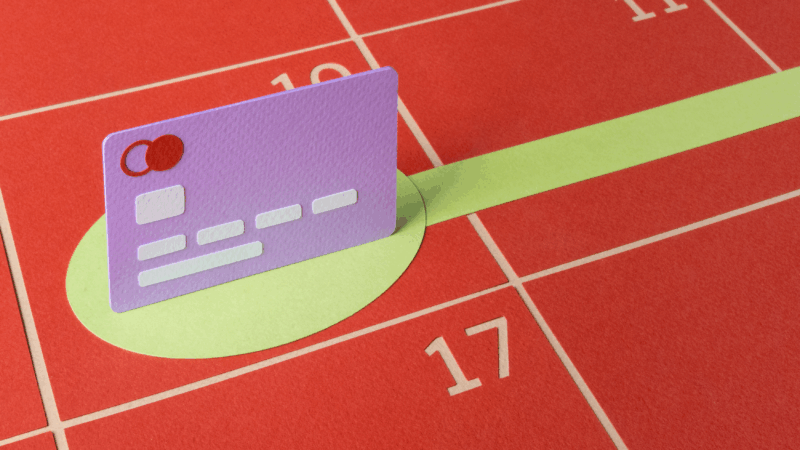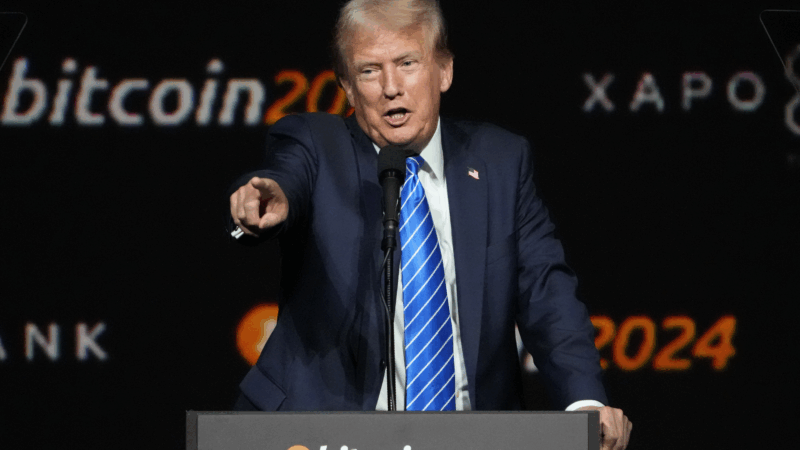A special newsletter to help you save money and pay off credit card debt
These days, it can feel impossible to stay on top of credit card debt. The cost of living is going up, inflation is on the rise and job growth is slowing.
And more Americans are falling behind on their bills. Credit card debt in the United States is at a record high. In the second quarter of 2025, credit card balances in the U.S. rose to $1.21 trillion, a 5.87% increase from a year ago, according to the Federal Reserve Bank of New York.
With interest rates often up around 20%, credit card debt can be a pretty big hole in your financial boat that you’d be better off plugging to keep yourself afloat.
That’s why Life Kit created a Guide to Paying Off Credit Card Debt. In this one-month newsletter series, financial educators explain how to create a credit card payment plan that works with your budget, so you can save money and make a meaningful dent in your debt.

How to sign up
To sign up for this newsletter series, click here and enter your email address. Over the course of a month, we’ll send you a weekly newsletter with tips on how to save money to put toward your debt. Sign up at any time to start your journey.
After this newsletter series ends, you’ll receive weekly emails from Life Kit on lifestyle topics such as health, money, relationships and more.

Strategies to pay down debt, right to your inbox
Whether you’ve hit a number on your balance that makes you feel uncomfortable, are behind on payments or just want to learn how to use your card responsibly, our series has tools for everyone. Here’s a sampling of what you’ll get in your inbox.
Here’s a sampling of what you’ll get in your inbox:
✅ How to reframe your relationship with debt
✅ Moves you can take right now to slow down the growth of your debt
✅ How to save money in your budget to put toward your debt
✅ How to decide which card to pay off first
✅ Expert advice on how to stay off the hamster wheel of debt

Paying off credit card debt is not impossible
People who carry a credit card balance often feel like they can never get out of debt. But that’s not true, says financial educator Rita-Soledad Fernández Paulino.
“I’ve had clients eliminate five figures of debt in about six months. Other [clients] can take 12 to 36 months,” she says.
The key is to set significant cash aside to throw at balances, she says. That’ll mean rethinking your spending habits or even finding extra sources of income (which we’ll explain how to do in our email series).
“When you’re paying only the minimums, most of your payment goes to interest, so the balance barely moves,” Fernández Paulino says. “And without enough monthly surplus, progress is slow.”
Ready to save money and create a financial plan to tackle your credit card debt? Sign up for Life Kit’s Guide to Paying Off Credit Card Debt to get started.
The digital story was edited by Clare Marie Schneider and Meghan Keane, with art direction by Beck Harlan. We’d love to hear from you. Leave us a voicemail at 202-216-9823, or email us at [email protected].
Listen to Life Kit on Apple Podcasts and Spotify, or sign up for our newsletter.
In this Icelandic drama, a couple quietly drifts apart
Icelandic director Hlynur Pálmason weaves scenes of quiet domestic life against the backdrop of an arresting landscape in his newest film.
After the Fall: How Olympic figure skaters soar after stumbling on the ice
Olympic figure skating is often seems to take athletes to the very edge of perfection, but even the greatest stumble and fall. How do they pull themselves together again on the biggest world stage? Toughness, poise and practice.
They’re cured of leprosy. Why do they still live in leprosy colonies?
Leprosy is one of the least contagious diseases around — and perhaps one of the most misunderstood. The colonies are relics of a not-too-distant past when those diagnosed with leprosy were exiled.
This season, ‘The Pitt’ is about what doesn’t happen in one day
The first season of The Pitt was about acute problems. The second is about chronic ones.
Lindsey Vonn is set to ski the Olympic downhill race with a torn ACL. How?
An ACL tear would keep almost any other athlete from competing -- but not Lindsey Vonn, the 41-year-old superstar skier who is determined to cap off an incredible comeback from retirement with one last shot at an Olympic medal.
Trump promised a crypto revolution. So why is bitcoin crashing?
Trump got elected promising to usher in a crypto revolution. More than a year later, bitcoin's price has come tumbling down. What happened?







